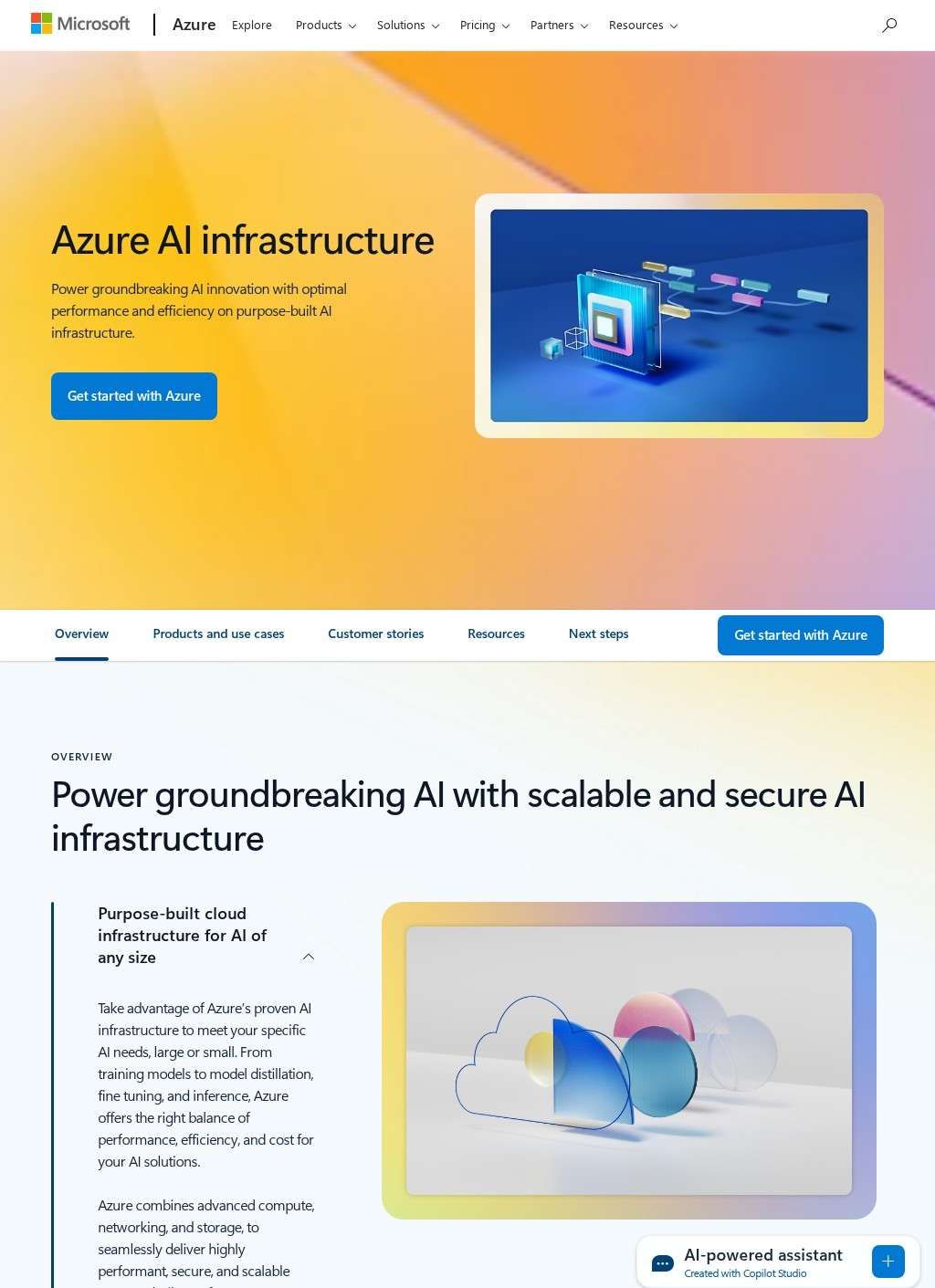Microsoft Azure operates one of the world's most sophisticated AI infrastructure platforms, purpose-built to support everything from experimental model development to production-scale generative AI deployment. The platform gained significant credibility by serving as the foundation for OpenAI's groundbreaking models, including GPT-4 and ChatGPT, demonstrating its capability to handle the most demanding AI workloads.
Azure's hardware strategy centers on its custom silicon development, including Azure Maia AI accelerators and Azure Cobalt CPUs designed specifically for cloud-native AI workloads. The platform combines these innovations with industry-leading hardware from NVIDIA, offering customers flexibility in choosing the optimal compute architecture for their specific use cases. Recent additions include ND H200 V5 virtual machines featuring NVIDIA's latest H200 GPUs with enhanced memory bandwidth.
The infrastructure extends beyond compute to encompass advanced networking and storage solutions specifically optimized for AI workloads. Azure Boost technology eliminates bottlenecks in data movement, while the platform's global network of over 60 datacenter regions ensures low-latency access worldwide. This geographic distribution allows organizations to deploy AI applications close to their users while maintaining data residency requirements.
Azure AI Foundry serves as the central development environment, providing access to cutting-edge models from Microsoft, OpenAI, Meta, Cohere, and other leading AI research organizations. The platform simplifies the process of fine-tuning foundation models, deploying custom applications, and scaling AI solutions across different environments. Built-in responsible AI guardrails help organizations deploy AI safely while maintaining ethical standards.
Security represents a core differentiator for Azure's AI infrastructure. The platform employs hardware-rooted security measures, including the new Azure Integrated HSM chips being installed in every server starting next year. Confidential computing capabilities using NVIDIA H100 GPUs enable secure AI processing of sensitive data. Azure's commitment to data privacy ensures customer data never trains other models.
Cooling and power efficiency receive significant attention in Azure's datacenter design. The platform uses next-generation liquid cooling systems to support high-density AI workloads while maintaining energy efficiency. Disaggregated power rack designs, developed in collaboration with Meta, enable 35% more AI accelerators per rack through 400-volt DC power distribution.
The platform integrates seamlessly with Microsoft's broader ecosystem, including Azure AI services, GitHub for development workflows, and Microsoft 365 for enterprise productivity. Pricing follows a pay-as-you-go model with enterprise-grade support options. Organizations can access Azure AI infrastructure through the Azure portal, with specialized consulting services available for large-scale AI deployments and architectural guidance.
